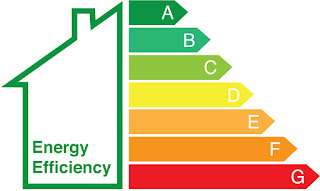The Ultimate Guide to House Sharing
The Ultimate Guide to House Sharing
Are you thinking of moving into shared accommodation? If you are, you could become part of a growing number of socially and economically savvy renters who are making house sharing a lifestyle choice rather than a necessity.
You may not know this, but houses sharing is on the up. Cohabiting with friends, or within a total group of strangers in a property that would otherwise be un-affordable is an ultra modern way of living.
But is it right for you?
Here's our ultimate Guide for students & working professionals who are considering sharing a house.
The Social Aspect
Cautionary advice... Sharing isn't for everyone. If you are more of the introvert persuasion and you need to push the off switch now and again and have your own safe haven, it may all be too much.
On the other hand, it could be just what you need to expand your social circle. Many of our tenants end up becoming great friends with at least one of their new housemates.
If you're slightly more extrovert in nature, thrive on social interaction and laugh in the face of silence, then moving into shared accommodation may well fill up a lot more dates in your social diary.
If you're about to fly the nest, you may not be able to afford home ownership, and you definitely don't want to stick with the 'stay with parents' option. A confident, social animal like you may well be at home in the rental market. And more importantly the house sharing market.
With house sharing, you're never alone. There's always someone on hand to share a meal with, share your day with or just share a glass of beer with.
It's a great chance to meet new people outside of your usual circle of friends.
The social benefits of house sharing far outweigh living alone.
The Economic Aspect
Your ultimate aim may well be to own your own property, some day. But renting is a good option in the meantime. When you share a house, you only pay for the room, not the entire house. You can, therefore, save a substantial amount compared to paying a mortgage - and usually live in a better standard of house.Plus, when you rent a room from an agency or a private landlord, your bills are usually included. No need to worry about paying for utilities like gas, electric, water, council tax or broadband.
The Geographical Aspect
When you own your home home, you will usually need to commute to work. And that means expensive train, bus tickets unless you own your own car. With house sharing, however, you're not tied to a specific location.That means you can search for somewhere that is more geographically appealing in terms of being closer to your place of work and also within easy walking distance or on a bus route.
Landlords tend to opt for properties that they know will appeal to people working at local businesses or organisations. And it's certainly true to say that the majority of our student properties are right next to the local university or across the road.
The Health Aspect
Strange heading, but can their be health implications of living in shared accommodation?Well, it has been statistically proven that living with other people and being socially connected can have massive health benefits and even prolong life. Living with other people, especially in a shared house, means that you will naturally, or subconsciously make more of an effort to chat and mingle.
Sometimes it's because you don't want to appear ignorant and sometimes it's because you just happen to be making breakfast together. But either way, being socially involved helps ward off loneliness.
So, we have made it to the conclusion
Sharing and renting as opposed to owning is now a way of life. And it's not limited to housing.Just think about the world around you at the moment, we rent or lease cars as opposed to owning them. We car-share to save money, and help the environment. We stream films and even stream music. All these services are readily available without the need to go and buy.
Society is changing and so is the world around is.
You haven't failed because you don't own your own home. With the average house price estimated to top the £400,000 mark by 2025, house sharing is here to stay.
So, give it a go, you'll save some money, make new friends and live longer.




Comments
Post a Comment